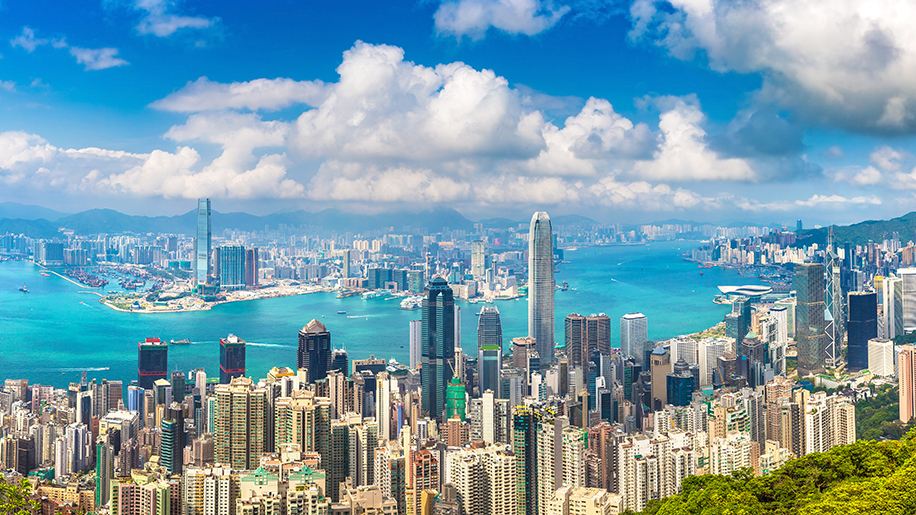MPF Retirement – For Hong Kong Expats Who Have Left – that will be the topic of today’s article.
Before introducing this article, if you are interested in our core services which are expat financial, insurance and mortgages, you can contact me here.
The best time to consider your financial situation is when you are moving to a new country.
Introduction
Living in Hong Kong could be a great decision for you. But sometimes, people find it difficult to know whether Hong Kong is the best destination for expat or not. Well, just as we’ve said in our previous post, there are many things to consider if you want to reside in Hong Kong. So, what are the things to know?
Of course, you wouldn’t want to visit a country you know nothing about. So, why do you think Hong Kong is the right place? Well, the countless number of times, we have explained the reasons why you need to retire in some countries. If you check our previous post, you’ll understand the process better.

However, before we walk you through the MPF retirement in Hong Kong, it would be better to understand what retiring in Hong Kong entails. For most people in Hong Kong, a question that comes to mind is; do I have enough money to retire? Well, as average life expectancy increases, so does our duration.
If you’ve been surfing the internet to get the right information about retirement in Hong Kong, look no further. This is the right platform, and you need to understand the right ways to get a retirement plan in Hong Kong before you proceed to jump on a flight. Does that sound interesting? If yes, read further!
In this article, we will walk you through the MPF retirement in Hong Kong. Not only that, but you’ll understand what retirement in Hong Kong entails. If you have retired in another country but want to move to Hong Kong, you need a visa unless you already have Hong Kong, the permanent resident.
Understanding Retirement in Hong Kong in 2021
As of today’s 21st century, we can tell you that there’s no default retirement age in Hong Kong. In fact, employers and employees can agree on the age to retire. Besides, it is widely accepted that the retirement age is 65 for male employees and 60 for female employees. So, when is the right time?
From the 1st of December 2021, all employees and self-employed persons between the ages of 18 and 65 are required to join the Mandatory provident fund scheme, unless specially exempt or employed for less than 60 days in the year. However, employees are required to contribute a minimum of 5 percent of relevant income to the scheme. Meanwhile, self-employed persons also have to contribute 5 percent.

Now, what is MPF Retirement in Hong Kong? Of course, you might have been seeing a lot of questions on different platforms that warrant ignoring Hong Kong for other countries. But, worry less; most people would like to maintain their pre-retirement standard of living and enjoy the lifestyle in Hong Kong as an expat.
MPF (Mandatory Provident Fund) in Hong Kong was launched in December 2000. It’s a retirement investment plan which makes saving compulsory to ensure that most Hong Kongers will have money put by for the future. In other words, we can say that it’s a fully managed, funded, and mandatory contribution scheme for locals and expats living in Hong Kong either for business or work purposes.
Perhaps, 5 percent of your salary would be deducted every month and contributed to your MPF to match a mandatory contribution by your employer. This way, MPF is you being paid to save in Hong Kong. While this is an important part of your retirement, it is not enough to cover your entire post-retirement expenses or your future retirement needs.
How Does MPF Works in Hong Kong
The MPF works if you meet the requirements. Besides, if you’re between 18 to 65 and have been employed for 60 days or more, your employer will enroll you into an MPF scheme. However, you will have chosen what type of funds you would like to invest within that scheme.
This implies that both your employer and you will make monthly contributions to that scheme until the day that you leave that company. Meanwhile, it will be deducted directly from your salary into the MPF account on a monthly basis.
If you probably leave for a new job, you can either keep your MPF contributions in the existing MPF scheme with your previous employer or consolidate them into the MPF scheme of your new employer. So, be rest assured that this MPF contribution process will repeat itself throughout your working life.
7 Tips for Retirement in Hong Kong
Retirement abroad has become increasingly popular in recent years. According to the Social Security Administration, the number of retirees who draw Social Security outside the United States jumped more than 40 percent to more than 413,000 between 2007 to 2017.
And it doesn’t even count the number of younger Americans enjoying early retirement in another country. In spite of that, retirement in Hong Kong has played a crucial role for expats living in the country. In this section, let’s quickly walk you through the seven tips for retirement in Hong Kong.

1. Set Your Retirement Goals
The world is a pretty large space, so you can’t just point to a map and choose your new home haphazardly. With this in mind, it would always be better to make a list of your goals to consider everything you need for a happy retirement. Perhaps, you can decide if you want a retirement in Hong Kong to be a permanent or temporary arrangement.
2. Choose a Suitable Location
In most cases, retiring in Hong Kong is more than finding the ideal climate and best sunset. In fact, before diving into the specifics of one country or the other, you might want to consider the following when thinking about the best places to retire abroad. Take a look at the key factors to put into consideration.
● Cost of Living – Though many retirees find that living in Hong Kong allows them to get more out of their retirement savings. Moreover, some foreign locations have a higher cost of living. In addition to this, cost of living, relocation costs, and expenses are some things to consider.
● Language and Culture – Language and culture are another to consider when choosing the right location for your retirement. Sometimes expatriates find themselves feeling isolated because they find it difficult to blend with languages. This way, it would always be better to consider your ability to adapt to the new country’s customs.
● Healthcare facilities – In Hong Kong today, access to medical care becomes increasingly important as you reach retirement age. Not only that, but many countries with low cost of living also have poor access to important health care services. So be wary of the healthcare you choose.
● Infrastructural Facilities – Would you love your retirement to be near an international airport, or do you require high-speed internet access? Either way, you need to check the infrastructural facilities if it’s the kind of things you want before exploring the cities.
3. Understanding Visa Packages and Residency Requirements
Before you catch up a flight to Hong Kong, it’s always necessary to understand the visa packages and residency requirements. In fact, every country imposes unique immigration, visa, and residency requirements.
In most cases, permanent residency status is only granted after you legally reside in this city for a certain number of years. Since the visa and residency process can be daunting, hiring a local lawyer that’d help you through the process will navigate the task.
4. Take Your Retirement for a Test Drive
Since retirement is a big decision, you need to try Hong Kong and understand all it entails to retire in this city. However, if you find the experience nothing but challenging and frustrating, you can go home any time. Besides, your old life is waiting for you here, so take your retirement for a test drive.
On the other hand, you can always adjust the idea to suit you. Maybe you’ll never be up for retiring to a new country full time. This way, know why you wish to withdraw in Hong Kong and the requirements for the MPF retirement package.
5. Figure Out Your Budget and Financial Sense
Financial sense and your budget are crucial to have peace of mind while living in Hong Kong as an expat. Whether you decide to move to another country in retirement or stay in Hong Kong, you must have a strong retirement financial plan. As time goes, we will explain the benefits of retiring in Hong Kong as an expat.
6. What to do with your Existing Homes
Sometimes, it could be funny when people talk about this. As an expat moving to relocate to a new home, the question you need to ask yourself is, what will you do with your existing home in Hong Kong? Well, it’s a big financial matter to consider. Take a look at the tips listed below.
- If you plan on living for the rest of your life full-time in Hong Kong and you want to sell your home, it could be a significant cash infusion for you and also have a big impact on your retirement finances.
- Again, if you only plan on living in Hong Kong, you may want to rent a new home to generate additional income in retirement. So, put in mind that selling your home is a great impact on your retirement lifestyle in the city.
7. Figure Out Healthcare Plan
One main reason why people would love to live abroad is the healthcare plan. Since Medicare does not cover health care outside of the U.S., you’ll also want to factor in the health insurance policy. This is why we advise you to subscribe to a reliable healthcare insurance policy in Hong Kong during your stay here.
A good international policy will probably cover private medical and dental treatment or medical evaluation to Hong Kong. However, the cost will vary tremendously – although, for some countries, your expenditure might be lower than your out-of-pocket Medicare costs.
Pros and Cons of Living in Hong Kong

Relocating to any destination for retirements in today’s digital world has its advantages and disadvantages, and this is why expats will find that Hong Kong is no different. This means the better-prepared expats-to-be are for the less appealing aspects of life abroad, the more successful they’d be able to adapt. Of course, let’s quickly walk you through the benefits of living or retiring in Hong Kong.
Pros
1. Accommodation Options
As of the time of writing this article, we can tell you that there are many options for accommodation or renting an apartment in Hong Kong. Besides, there’s always something new being built in this city, and although that means being treated to the melodic sounds of drills and jackhammers when walking down the streets, it also means it’s easy to find a new apartment abroad.
2. Wide Variety of Standard School
Parents looking to enroll their children in school during their retirement have the advantage of enrolling them to some of the best international schools in the world. Expat families in Hong Kong are often able to find a school that offers a standard curriculum or at least an internationally recognized one. Besides, various national curricula are thought including those from the UK, Australia, Canada, Germany, and others.
3. Plenty of Outdoor Activities to Explore
If you found yourself in Hong Kong, don’t be surprised to see tons of outdoor activities you may never experience in other countries. Not only that, but kid-friendly attractions can be found just about everywhere in Hong Kong, ranging from bustling theme parks such as Disneyland to picnicking and all.
Interesting Outdoor Activities in Hong Kong
Hiking in Hong Kong – If you’re an expat that enjoys outdoor activities, you’d want to play with your families and friends while hiking. More so, there are impressive hikes all over Hong Kong Island that enjoy views of beautiful green hills, as well as the concrete jungle
Wakesurfing and Wakeboarding – This is another place to have a lovely experience with your colleagues. Wakeboarding has always been a popular activity in this city, best enjoyed at Tai Tam reservoir, Stanley or Sai Kung. But in recent years, wakeboarding has gained followers.
Rock Climbing – Rock climbing might be quite challenging for the elders. However, there are a host of rock-climbing destinations to check out in Hong Kong if you want to give it a trial. Meanwhile, the Hong Kong Rock Climbing Adventure runs tours to most of these destinations with climbs ranging from easy to more challenging.
4. Friendly Expat Community
The expat community in Hong Kong is incredibly friendly compared to other countries you might think of. In fact, we can tell you that it’s home to hundreds of thousands of expats. This city is exceptionally welcoming as most people know what it’s like to be new and are happy to help and befriend newly arrived expats. Unlike most cities where people have established circles of friends, people come and often go in Hong Kong, and there’s a distinct lack of cliques, which is refreshing
5. Outdoor Pursuits and Varied Nightlife
There’s a lot to do in Hong Kong, especially when it comes to outdoor activities and varied nightlife in Hong Kong. With a huge variety of restaurants and bars in this city, there is always something new to try as of today. Meanwhile, you’ll enjoy lovely hiking trails around that cater to all types of social preferences. And although Hong Kong is famous for being a concrete jungle, as there are a lot of green spaces.
6. Fantastic Public Transport Network
Unlike other cities you might ever think of, Hong Kong’s transportation network is modern, clean, and, most importantly, reliable. In fact, the MTR runs at regular intervals, and delays are a rarity in this wonderful city. Best of all, public transport in Hong Kong is incredibly cheap, especially considering how effective it is to the locals and residents.
7. Safety and Security Measures
Hong Kong has one of the lowest crime rates globally despite the territory having one of the most densely populated urban regions. Again, it’s often described as one of the safest cities in the world. And low crime rates make Hong Kong the perfect place for you to settle down.
Cons
1. High Rent and Lack of Space
This is one of the problems you might encounter if you truly want to live in Hong Kong as an expat. The rent in the city is eye-wateringly high, and the spaces are often frustratingly small. With that being said, taxes are low, and you should just placate yourself by the fact that the two balance each other out.

2. Humid summer or Weather
Another problem retirees can face in Hong Kong is the humid weather. That’s why we always advise you to research well about the country or city you’re moving to before jumping to catch a flight. Summer is also the season for typhoons, and this may sound not very comforting, but Hong Kong is incredibly well-equipped to deal with extreme weather.
Should a typhoon be approaching, cautionary signs will be displayed everywhere indicating the typhoon level. Hence, residents know whether they should batten the hatches at home or continue their day normally.
3. Limitations for English Speakers
Another problem expats could face while retiring in this country is the limitation for English-only speakers. Sometimes expats tend to work in finance, property, and law. And as a result, these are the easiest areas to get into for those who don’t speak possible to get into other lines of work. In Hong Kong, overall, there’s a lack of opportunity for non-Mandarin or non-Cantonese speakers outside these three industries.
4. Crowded Environment
Just like in other big cities of the world, you’ll always experience a crowded environment, and Hong Kong is no exception. Since Hong Kong’s density is 6,650 per square km, the entire human race could fit and find it challenging to adapt in the city. Just imagine rush hour when it’s 30 degrees Celsius outside
Frequently Asked Questions about Hong Kong MPF Retirement
Is MPF a retirement account in Hong Kong?
We will tell you that the Mandatory Provident Fund, often abbreviated as MPF, is a compulsory saving scheme for retirement of residents in Hong Kong. More so, most employees and their employers are required to contribute monthly to mandatory provident fund schemes provided by approved private organizations, according to their salaries and the period of employment.
Who’s Exempt from MPF in Hong Kong?
As of the time of writing this article, employees and self-employed persons who are under 18 or over 65 years of age are exempted from Hong Kong MPF program. Not only that, but self-employed hawkers and people covered by a statutory pension or provident fund scheme, such as civil servants and subsidized or grant school teachers, are also exempted from the Hong Kong MPF program.
When can I withdraw my MPF in Hong Kong?
According to the MPFSO, scheme members can withdraw their MPF only when they reach the age of 65 in this city. Besides, the early withdrawal of MPF is allowed under certain specific circumstances, including early retirement, permanent departure from Hong Kong, terminal illness, death, and more.
How many times can I withdraw MPF?
In other words, you can make partial withdrawals from the following accrued benefits of a minimum of HK$5,000 per withdrawal before your retirement in Hong Kong. Moreover, it is possible to do this free of charge, up to 12 times in a scheme’s financial period from 1st of July to 30th of June, the following year.
Is MPF withdrawal taxable in Hong Kong?
Well upon withdrawal of MPF by scheme members, the sum derived from mandatory contributions is not taxable. Generally, when employees withdraw their MPF derived from voluntary contributions, only the voluntary contributions made by their employers may be taxable depending on the circumstances.
Conclusion
Expat living in Hong Kong must enroll in the MPF scheme if truly you want a good retirement lifestyle. Aside from that, you can still get your retirement package if you’ve left Hong Kong for another place. However, you need to meet the requirements to understand the process. Refer to this guide for more information.


